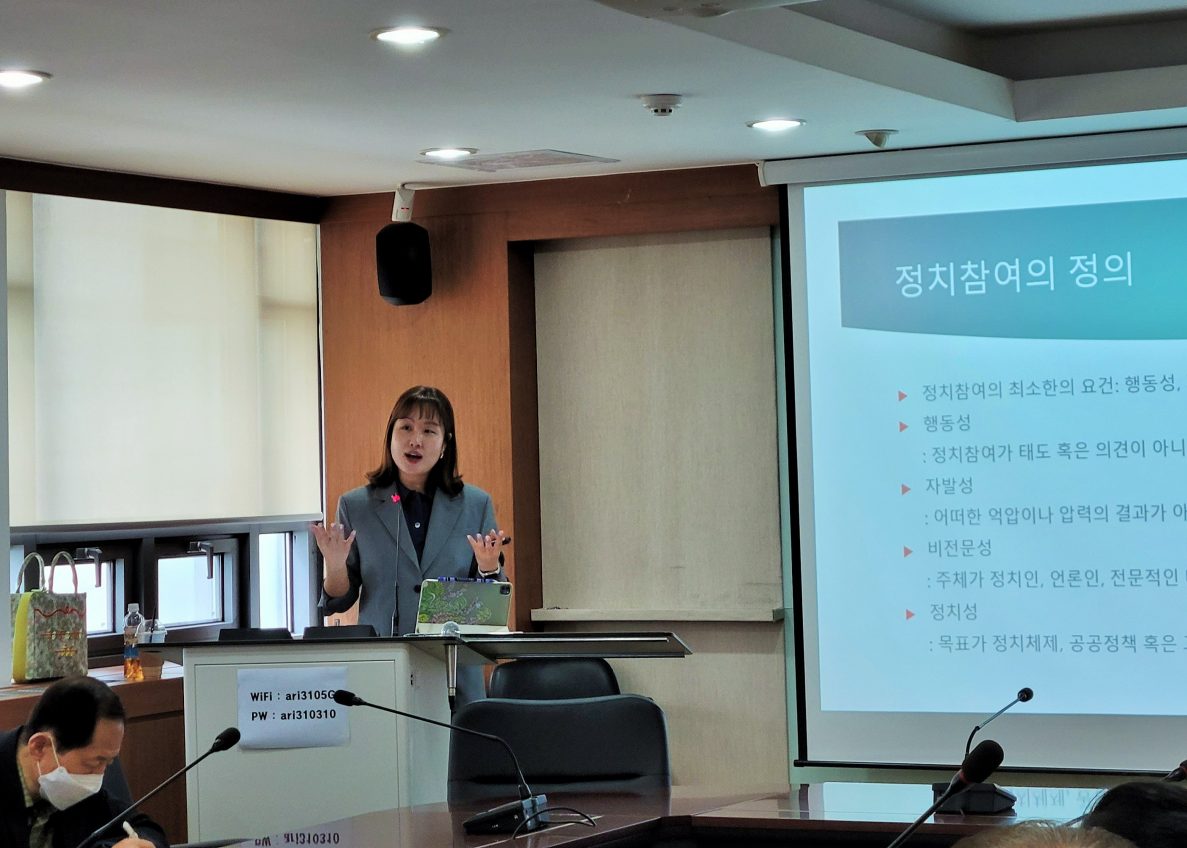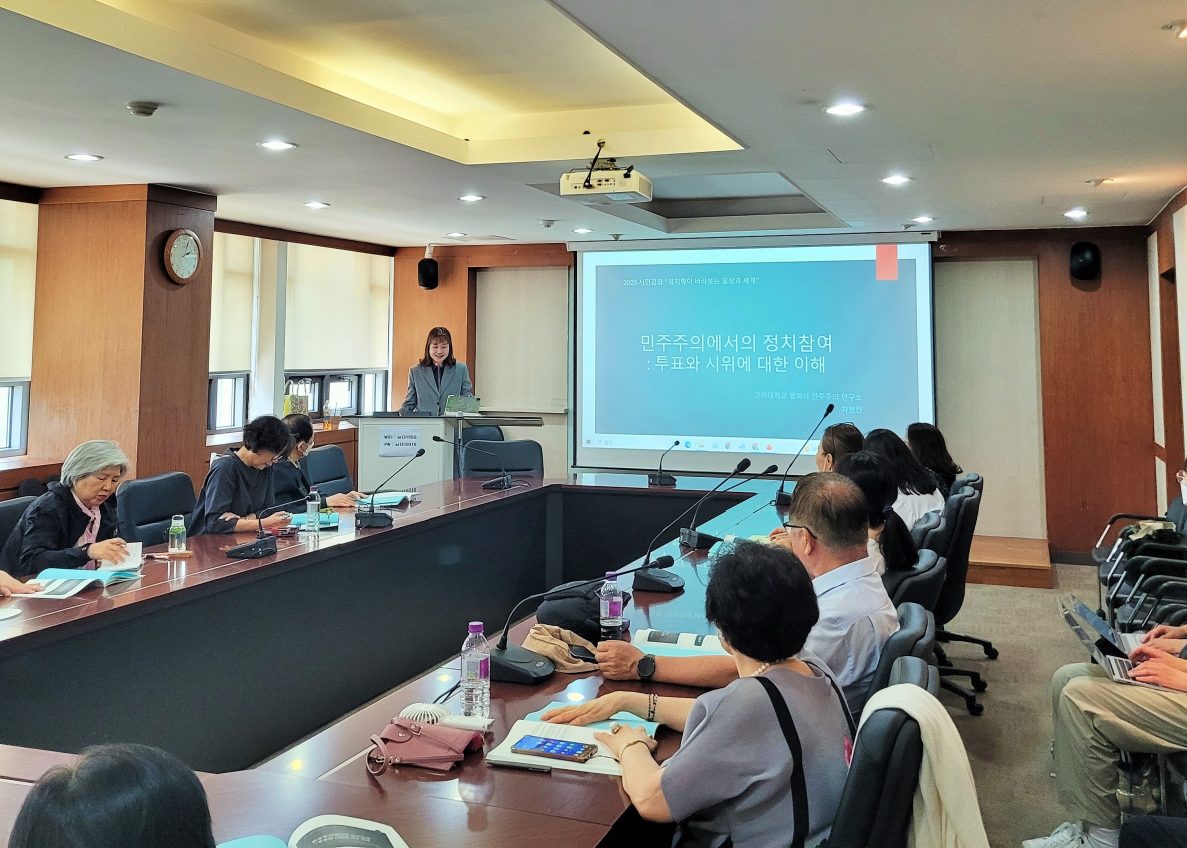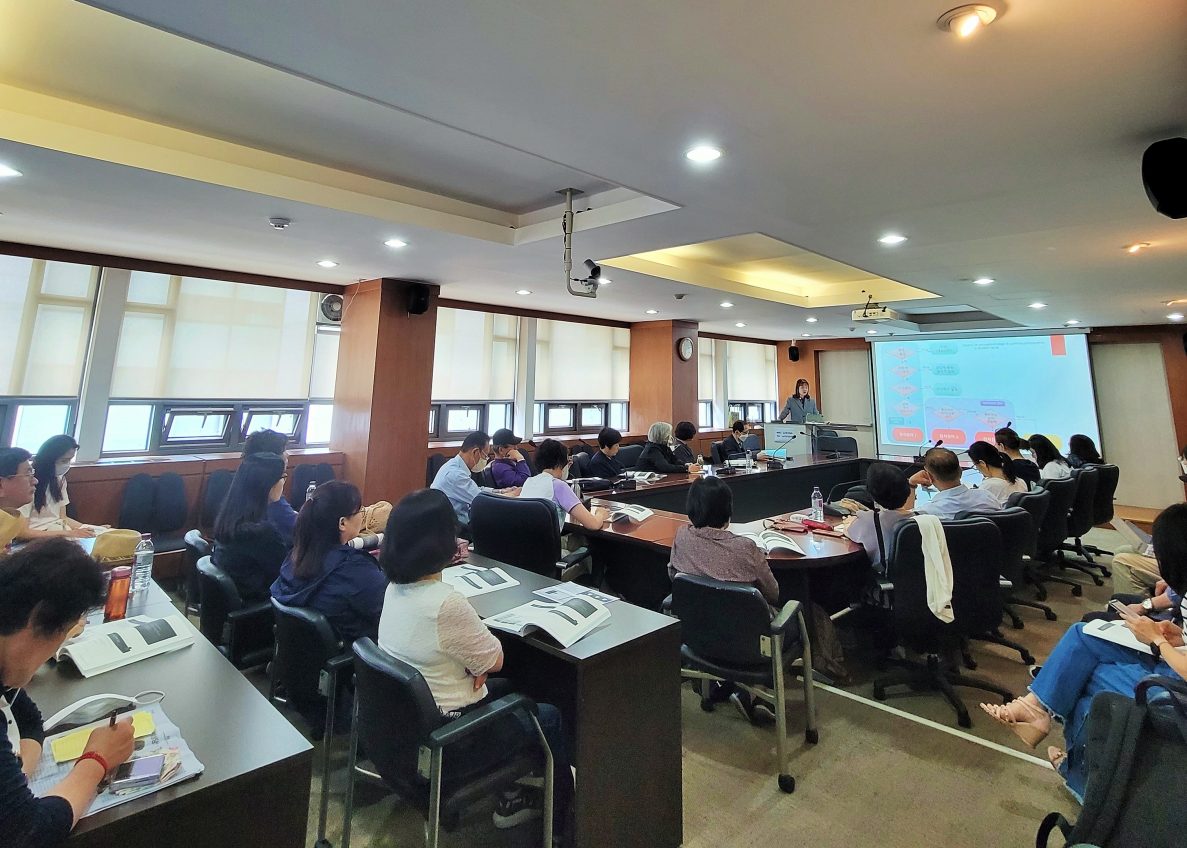[Citizen College Season 7] #6 Political Participation in Democracy: Understanding of Voting and Demonstration
On May 31, 2023, the Seongbuk Adult Education School, PDI, and the Department of Political Science and International Relations at Korea University held the sixth lecture of the Citizen College Season 7 “Politics in Everyday Life” in Asiatic Research Institute, Korea University. In this lecture Dr. Hyun-Jin Cha, Senior Researcher at PDI, talked about “Political Participation in Democracy: Understanding of Voting and Demonstration”.
The lecture, titled “Political Participation in Democracy: Understanding of Voting and Demonstration”, covered various definitions and theories of political participation and influencing citizens’ participation in politics, such as voting and demonstrations. Political participation is defined as the voluntary action of ordinary citizens to solve problems in the political sector. The minimum requirements for defining political participation are behavior, spontaneity, non-professionalism, and politics. From the perspective of analyzing political participation, there are socioeconomic approaches that explain differences in the level of political participation based on education or income level, and political and cultural approaches that analyze individual political values, beliefs, and attitudes.
In this lecture, we also discussed the factors that influence citizens’ participation in voting and demonstrations. From a political and social perspective that explains voting choices, social cleavage, such as regional and generational ideologies, is the criterion for dividing community members into groups with important political differences. From a social psychological perspective that explains voting choices, voters form different party identification through the process of political socialization in the social reference group. Once formed, the sense of party unity is maintained over time through a perception screen and affects voters’ election issues and attitudes toward candidates. Age and gender are the criteria for demographic characteristics, and socioeconomic status are education, income, Internet and social media use, and group membership. Political efficacy, political trust, dematerialist values, and subjective political ideology are cited as factors from the perspective of paying attention to ideology and values. In the lecture, activities such as watching videos on the 68th Movement, a social movement, and sharing citizens’ participation experiences in voting and demonstrations were conducted.



